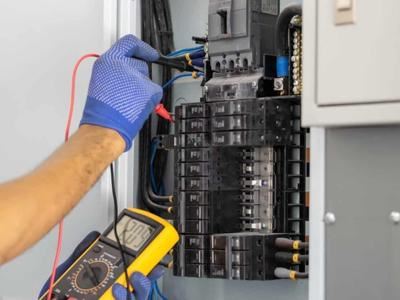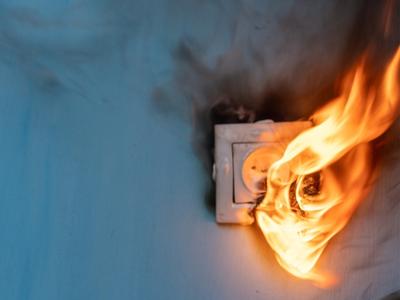Have you ever looked at your home's electrical panel and wondered what all of those switches and wires were for? If so, you're not alone. Understanding your home's electrical panel can be confusing, even for homeowners who are comfortable with do-it-yourself projects. Knowing the anatomy of your electrical panel and when it's time to call an electrician can help keep you safe and prevent costly repairs. In this blog post, we will discuss the basics of your home's electrical panel and provide some tips on when it's time to call a professional.
What is an Electrical Panel?
An electrical panel, commonly referred to as a breaker box, fuse box, or load center, is the main distribution point for electricity in your home. It distributes power from the utility company’s incoming lines to your home’s wiring system. The electrical panel is typically located in a closet, garage, or basement and is composed of an enclosure and circuit breakers. The enclosure is a metal or plastic box that contains the circuit breakers, while the circuit breakers are switches with handles that can be turned on or off.
The electrical panel is an important component of your home’s electrical system, and it should be properly maintained. Faulty wiring or faulty components can lead to fires, shorts, and even electrocution. It is important to have your electrical panel regularly inspected to ensure it is operating safely and efficiently.
How Often Should You Have Your Electrical Panel Inspected?

It’s important to regularly inspect your electrical panel in order to ensure that it is functioning properly and safely. Depending on the age of your home, you should schedule inspections every three to five years. It’s especially important to have your electrical panel inspected if you notice any signs of trouble, such as flickering lights or circuit breakers that keep tripping. Older homes may require more frequent inspections due to the wear and tear that can occur over time.
Before scheduling an inspection, make sure you hire a qualified electrician who is licensed and insured, like our Elite team. Our electricians will check for any damaged wiring, loose connections, and frayed insulation. Additionally, we will inspect the main breaker and all other safety components to make sure they are up to code. After the inspection, we will provide you with a detailed report that breaks down the condition of your electrical panel and any recommended repairs.
Regularly inspecting your electrical panel helps to reduce the risk of a hazardous situation, like an electrical fire. If it’s been more than three years since your last inspection, now is the time to call Elite and schedule one. By staying on top of regular inspections, you can ensure that your home’s electrical system is safe and reliable.
What Are the Signs That Your Electrical Panel Needs to be Replaced?

When it comes to your electrical panel, there are some signs that may indicate it is time for a replacement. The most obvious sign is a burning smell coming from your electrical panel. This is an indication of a short circuit and could be a sign of serious trouble. Other signs that your electrical panel needs to be replaced include flickering lights or tripped circuit breakers. If you experience either of these issues, it could be a sign of an overloaded circuit or a faulty wire connection. It's important to get your panel checked as soon as possible to ensure that you're not putting yourself at risk of electrical fire or shock.
How Much Does it Cost to Replace an Electrical Panel?

The cost of replacing an electrical panel depends on several factors, including the size of the panel and the complexity of the job. Generally speaking, a typical service panel upgrade or replacement can range from $500 to $2,000 or more. The cost could be higher if the electrical panel needs to be relocated or there is extensive wiring involved. When considering whether to replace your electrical panel, it is important to weigh the cost of the new installation against potential safety risks from having an outdated or malfunctioning panel. Replacing an electrical panel is a job for an experienced electrician, like our Elite team, and should not be attempted by a homeowner. It is always recommended to contact a professional to discuss the best course of action for your home.
When Should You Call an Electrician?
If you’re dealing with any issues related to your home’s electrical panel, it’s always best to call a professional electrician. While it may be tempting to try and tackle these issues yourself, you should never attempt to do any electrical work on your own. Licensed electricians are trained to safely handle any type of electrical issue, and they are also familiar with local codes and regulations. It’s important to call an electrician if you notice any signs of electrical panel problems, such as flickering lights, tripped breakers, or unusual buzzing or humming noises coming from the panel. Additionally, you should contact an electrician if you see any visible signs of damage or overheating around the panel.
Overall, your safety is the most important thing. If you’re dealing with any issues related to your home’s electrical panel, don’t hesitate to call Elite today. Our team is ready to help tackle all your electrical needs and will ensure we keep your home safe!

